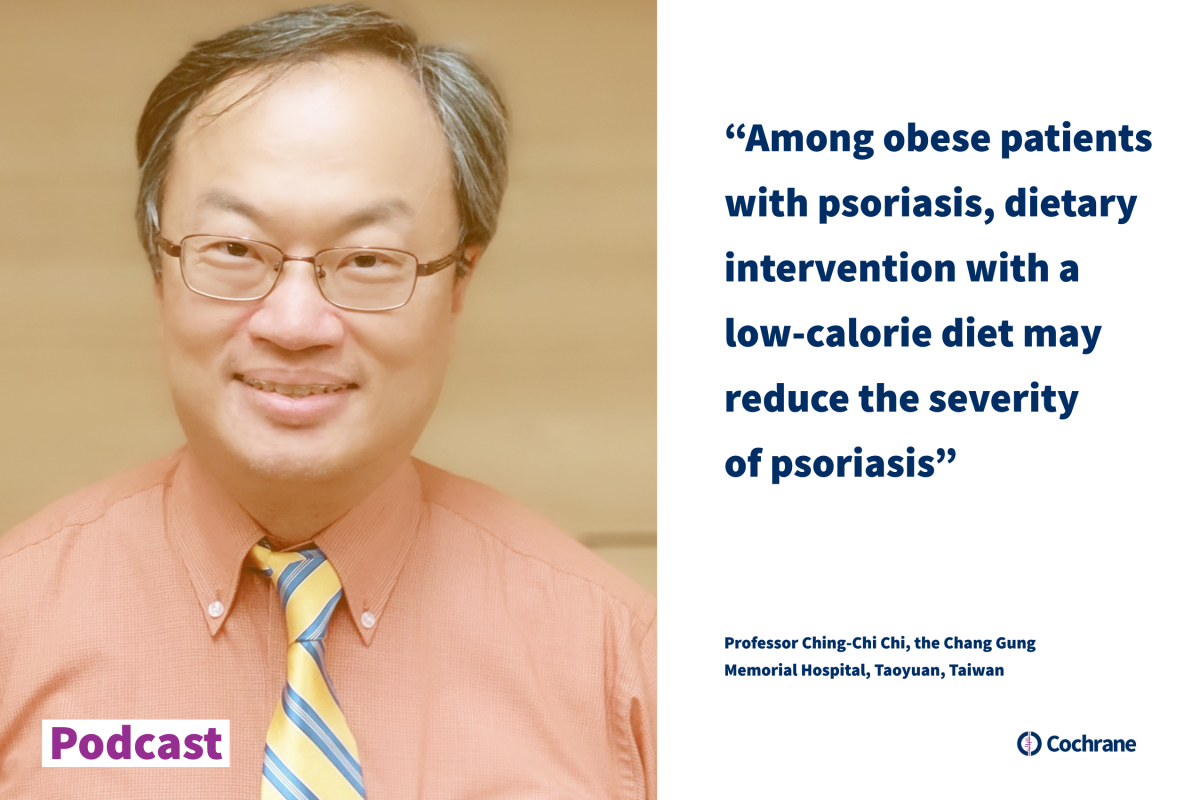
Psoriasis is a common skin problem and there are several Cochrane Reviews of various ways to treat it. These were added to in July 2019 with the publication of a new review on the potential benefits of lifestyle changes. We asked Professor Ching-Chi Chi from the Chang Gung Memorial Hospital in Taoyuan Taiwan to tell us what they found.
Psoriasis is a chronic inflammatory skin disease. It causes thick, red, itching, and scaling plaques, and affects more than 100 million people worldwide.
Obesity, drinking, smoking, and lack of physical activity may make the condition worse, and we wanted to find out whether changes to these lifestyle factors might help. We were particularly interested in things such as diet and exercise; and although we also wanted to investigate interventions targeting smoking or alcohol consumption; we found no trials on alcohol abstinence or smoking cessation.
We examined the research evidence that was available up to July 2018, and identified 10 relevant randomised trials, with a total of approximately 1,200 participants. The quality of evidence was moderate to low, with study limitations including participants knowing which treatment they were receiving and a large number of withdrawals from the trials.

However, we were able to draw some conclusions. We found that among obese patients with psoriasis, dietary intervention with a low-calorie diet may reduce the severity of psoriasis, and probably improves their quality of life and reduces their body mass index, or BMI. Also, among obese patients with psoriasis, combined low-calorie diet and exercise programme probably reduces the severity of psoriasis and BMI. Generally, participants complied with the assessed lifestyle changes successfully.
When compared to usual care, we found no evidence that education promoting healthy lifestyle alone without explicit dietary intervention or an exercise programme had an effect on the severity of psoriasis.
In summary, among obese patients with psoriasis, a low-calorie diet with or without an exercise programme may improve the severity of psoriasis and probably improves quality of life and BMI. However, whether dietary interventions prolong the time to relapse or whether it is effective in non-obese patients with psoriasis remains unclear.
